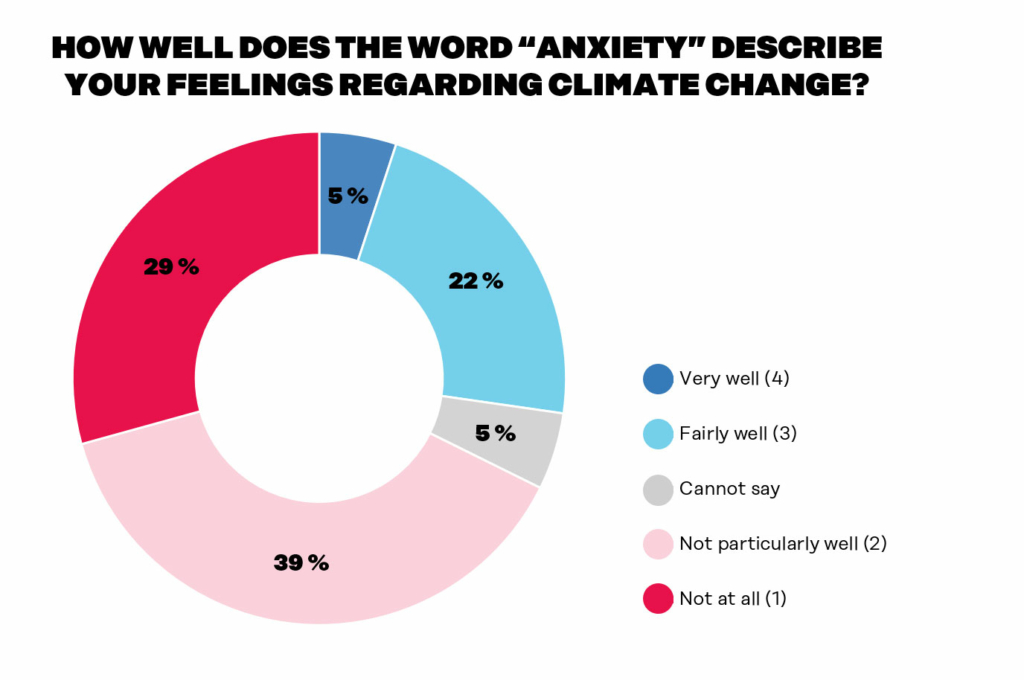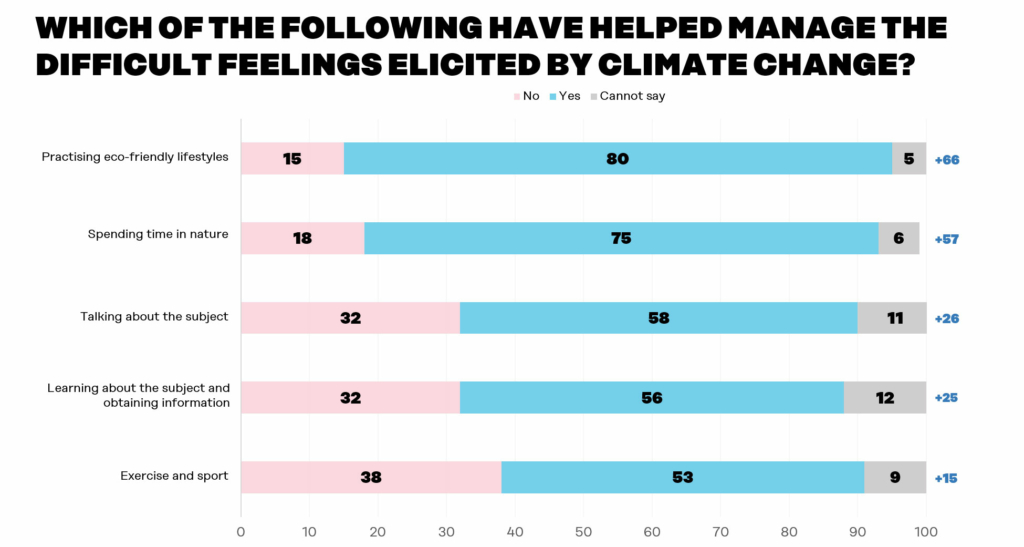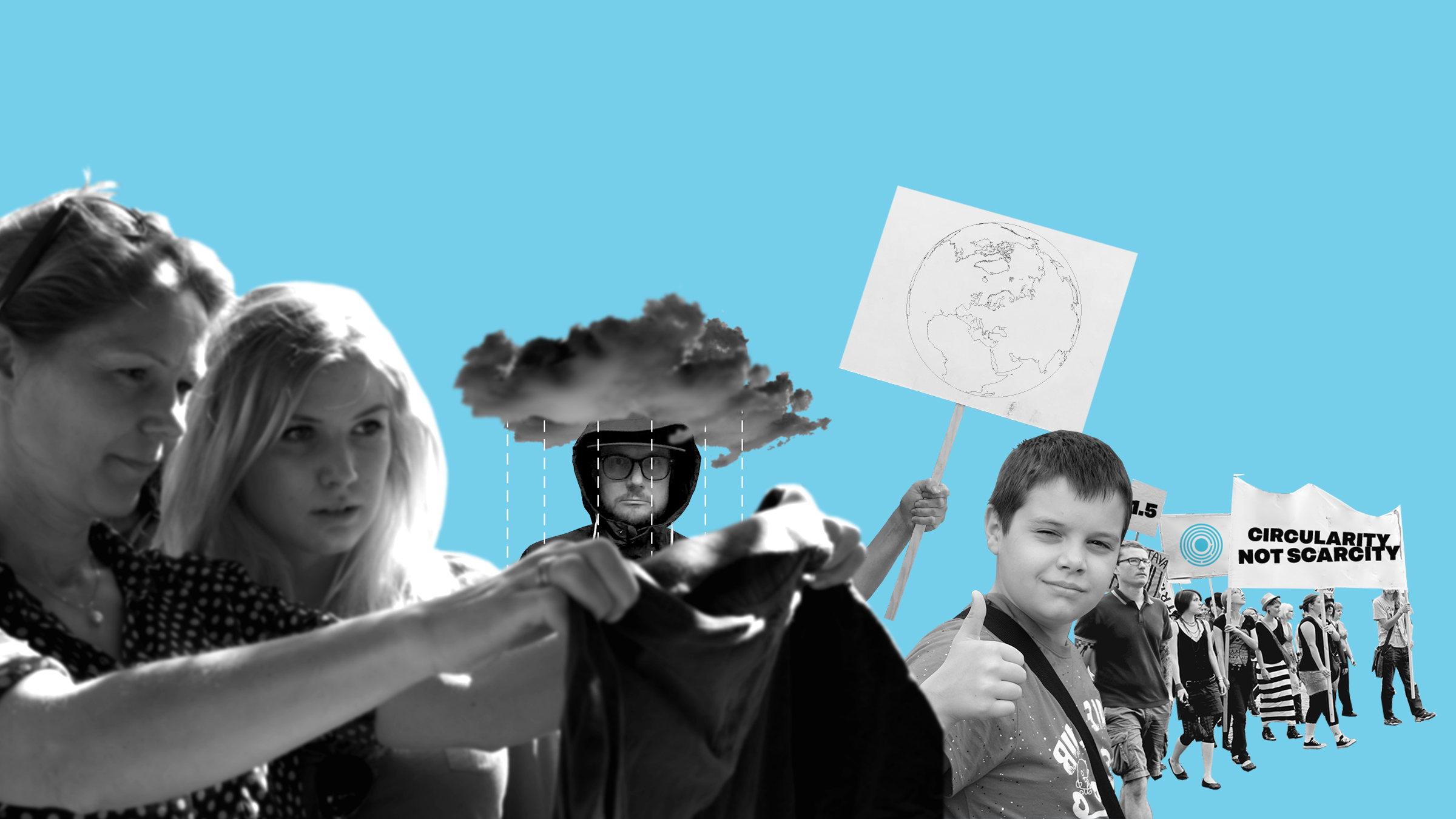Some 27 per cent of Finns indicate that the word “anxiety” is a very good or fairly good description of their feelings regarding climate change. Feelings of anxiety are the most common among young people under the age of 30. In that group, as many as 38 per cent answered the question in the affirmative.

In addition to anxiety, climate change also elicits many other feelings. The most common feeling elicited by climate change is interest (58 per cent of the respondents), followed by frustration and a sense of inadequacy (44%), powerlessness (39%) and hope (36%). The feelings least elicited by climate change are numbness (12%), empowerment (13%) and depression (14%).
“It is encouraging that very few Finns experience a sense of numbness due to climate change,” says Markus Terho, director of the Sustainable Everyday Life project at Sitra. “Positive emotions – such as interest, enthusiasm and hope – are linked with the most significant increases in activity among people to mitigate climate change. However, more difficult feelings – such as guilt, fear and anxiety – also make the majority of people take action.”
The survey commissioned by Sitra provides a look at the kinds of feelings that climate change has caused among Finns. The survey was conducted in May and June 2019 using the Kantar TNS online panel. More than two thousand Finns aged over 15 completed the survey.
Climate change spurs Finns to take action
According to the survey, personal lifestyle choices play a significant role in processing the feelings caused by climate change. As many as 80 per cent of the respondents who indicated that they have experienced anxiety or other difficult feelings reported that practising sustainable lifestyles helps manage these feelings. The next most popular ways of managing these feelings were spending time in nature (75%), talking about the subject (58%), learning more about the subject and obtaining information (56%) and exercise and sport (53%). Approximately a third of the respondents felt that civic activism or other ways of exerting influence can mitigate climate anxiety.

Young people under 30 were more likely than others to find relief by being active on social media. Young people talk about the feelings caused by climate change more than others, and they have a stronger sense that climate change affects their voting behaviour.
Overall, the respondents indicated that they see feelings caused by climate change much more in other people than in themselves. This particularly applies to climate change denial and scepticism, which are feelings that the respondents believe other people have, but not themselves. The difference between feelings perceived in themselves and others was the smallest when it came to feelings of hope.
There are many ways to exert influence
The media plays a central role in eliciting climate-related feelings: according to the respondents, stories in the news are the most significant factor causing both difficult as well as reassuring and positive feelings about the climate. In addition to news stories, examples of other people’s actions related to climate change and discussions with friends and family were most commonly cited by the respondents as eliciting reassuring and positive feelings, such as empowerment, enthusiasm and interest.
“We all can take action through our multiple roles: at home with the family, among friends, at the workplace, in our academic environment or when we are engaged in our hobbies. There are many opportunities to exert influence. Talking about various solutions and choices can also constitute significant climate action,” says Terho.
According to the survey published in July by Sitra, 69 per cent of Finns believe that consumption choices play a role in the mitigation of climate change. An even higher proportion, 78 per cent, indicated that practising sustainable lifestyles is important. When it comes to encouraging others to adopt eco-friendly solutions, Finns are a bit more reticent.
“We need to engage in open discussion on what a sustainable future society looks like and how we can all shape meaningful lifestyles for ourselves as members of that society. Constructive discussion regarding various sustainable choices and opportunities for exerting influence help strengthen the view that we are not heading for a depressing dystopia, but rather a future worth pursuing,” Terho concludes.
- Find out more: The results of the Climate emotions survey 2019 (pdf)
















Recommended
Have some more.